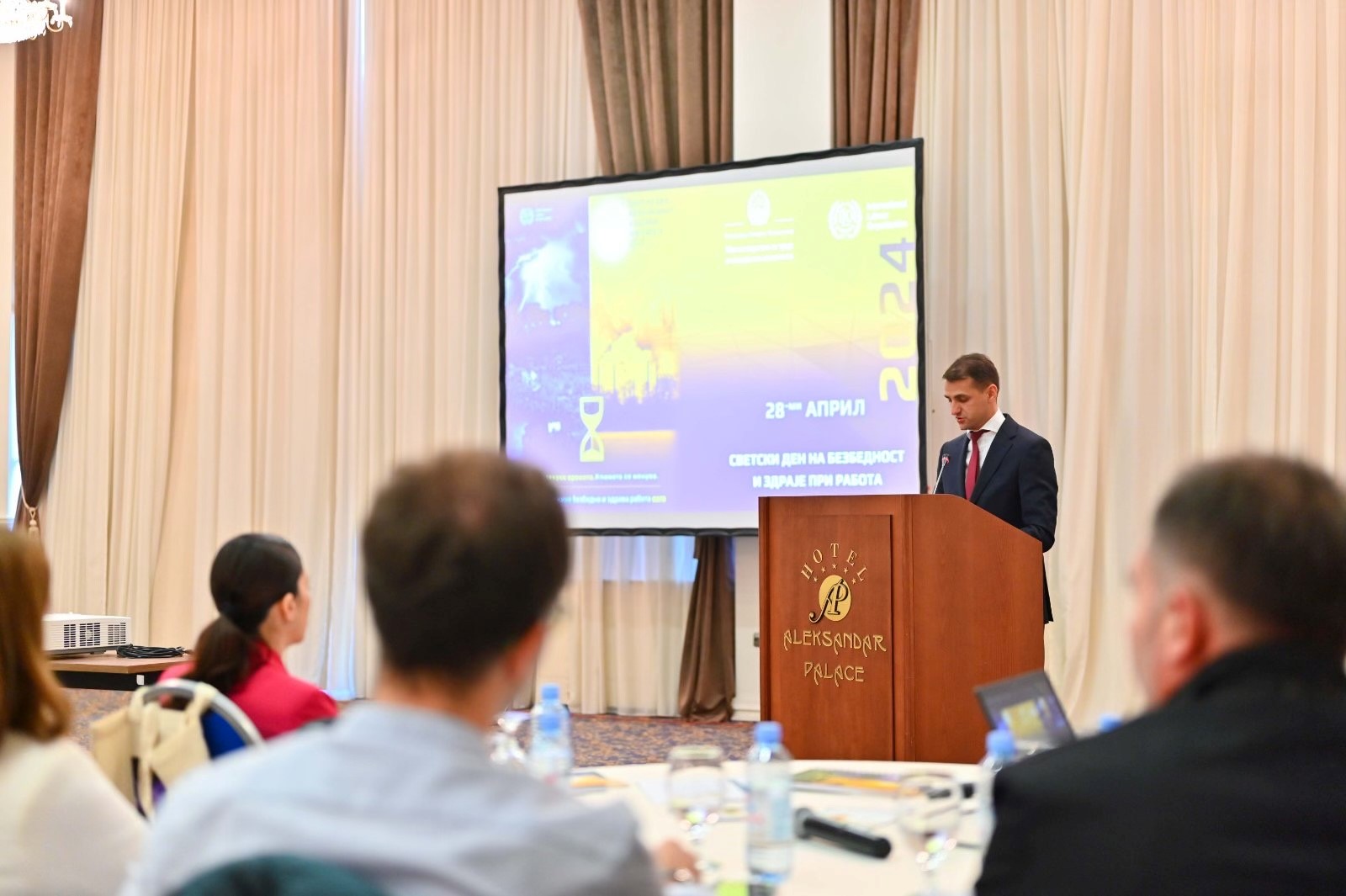News
01 May 2024 |News
ILO ESAP: Conference in Skopje Highlights Urgent Need for Occupational Safety Amid Climate Change

ILO: North Macedonia World Day for Safety and Health at Work 2024

ILO: North Macedonia World Day for Safety and Health at Work 2024 (Photo: ILO)

ILO: North Macedonia World Day for Safety and Health at Work 2024 (Photo: ILO)
On April 26, 2024, a significant conference highlighted the urgent need for improved occupational safety and health measures in response to the growing impacts of climate change. With 58 participants, including key government officials and labor representatives, the event focused on developing specific guidelines to protect workers from extreme heat and other climate-related hazards.
Skopje, Macedonia - April 26, 2024: Within the framework of the International Safety Day and Health and Work, a conference was held in Skopje, Macedonia, focusing on the critical intersection of occupational safety and health (OSH) and climate change. The event, attended by 58 participants including key figures such as the Minister of Labour and Social Policy, the President of the Federation of Trade Unions of Macedonia (SSM), the Executive Director of the Organization of Employers of Macedonia (ORM), and the Director of Labour Inspectorate underscored the urgent need for enhanced safety measures for workers amid rising global temperatures. This event was organized by the Ministry of Labour and Social Policy, Council for Occupational Safety and Health, International Labour Organization, and supported by the European Union (EU) funded project Employment and Social Affairs Platform 3.
The conference featured presentations on the impact of climate change from various perspectives, including climate activists, occupational medicine doctors, and OSH experts. A significant portion of the discussion centered on the need for specific guidelines to manage work during heatwaves. The State Labour Inspectorate (SLI) shared its current practices, which include stopping work during extreme heat based on OSH law provisions. However, there was a consensus on the necessity for clearer, more detailed guidance.
The International Labour Organization (ILO) report, “Ensuring Safety and Health at Work in a Changing Climate,” was a focal point of the conference. The report highlighted alarming statistics, such as the exposure of 2.41 billion workers to excessive heat, resulting in 22.85 million injuries and 18,970 deaths annually. The report emphasized the need for immediate implementation of heat stress preventative measures to protect workers.
The ILO analysis identifies six key impacts of climate change on OSH: excessive heat, ultraviolet (UV) radiation, extreme weather events, air pollution at the workplace, vector-borne diseases, and changes in agrochemical use. These hazards have numerous negative health effects, including employee injuries, cancer, cardiovascular diseases, respiratory conditions, and mental health issues. The report also provides examples of good practices in response to these hazards, including policies, strategies, laws, collective agreements, technical guidelines, training initiatives, awareness-raising campaigns, and workplace-level measures.
The conference also delved into practical measures to mitigate the effects of extreme temperatures on workers. Recommendations included:
- Organizational Measures: Adjusting work schedules to cooler parts of the day, providing shaded or air-conditioned rest areas, and ensuring adequate hydration.
- Personal Protective Equipment (PPE): Using appropriate clothing and gear to protect against heat and UV radiation.
- Training and Awareness: Educating workers on recognizing symptoms of heat stress and the importance of hydration and proper nutrition.
The discussions also highlighted the need for tailored strategies for different sectors, particularly those with high exposure to extreme temperatures, such as construction, agriculture, and emergency services. The importance of social dialogue and international collaboration was stressed to develop and implement effective OSH policies.
The conference concluded with a call to action for stronger OSH management systems that integrate heat stress prevention and control measures. The participants agreed on the importance of continuous monitoring, targeted research, and regional and global knowledge exchange to address the growing challenges posed by climate change on worker safety and health.





